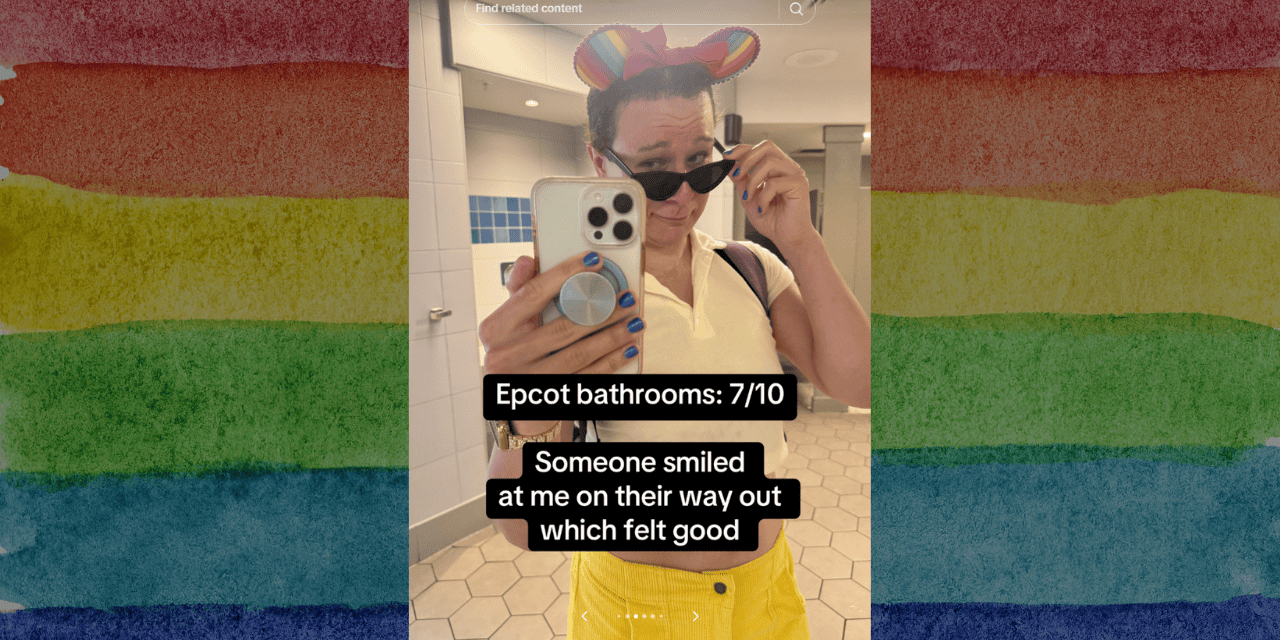Activists Challenge South Carolina’s ‘Heterosexual Relationships Only’ Sex Ed Law

In 1988, the South Carolina Legislature passed the Comprehensive Health Education Act. It lays out the requirements for the state’s public schools to follow on the subject of sex education.
This week, several LGBT activist organizations filed a federal lawsuit in an attempt have a section of the 1988 state law declared unconstitutional under the 14th Amendment’s “equal protection” clause.
The section of the law being challenged states: “The program of instruction provided for in this section may not include a discussion of alternate sexual lifestyles from heterosexual relationships including, but not limited to, homosexual relationships except in the context of instruction concerning sexually transmitted diseases.”
The official complaint filed in federal court alleges that the law singles out non-heterosexual students as a class for negative treatment based on sexual orientation.
In a non-binding legal opinion, South Carolina’s Attorney General Alan Wilson told the State Superintendent of Education Molly Spearman that, “It is our opinion that a court would likely conclude that this provision is unconstitutional as violative of Equal Protection,” citing the U.S. Supreme Court’s same-sex marriage decision in Obergefell v. Hodges.
But other state leaders disagree. Joshua Putnam heads up the Palmetto Family Council, a Focus-affiliated group in South Carolina. In an interview with The Daily Citizen, Putnam said, “We do not believe the 1988 law is in any type of constitutional trouble.” He feels that the lawsuit is typical of the groups who “litigate to death” on claims like these.
Putnam also said that the 14th Amendment was never intended to address any type of sexual classification one might want to include, but only male and female. “It was not intended as a blanket statement,” he said.
Contrary to the allegations included in the lawsuit, the law doesn’t make any negative statements about homosexuals. The argument LGBT organizations are making is that by only allowing a discussion of homosexual relationships when discussing sexually transmitted diseases, the law somehow disparages homosexuals.
That’s a stretch. There’s a valid reason for teaching about all sexually transmitted diseases and how they are transmitted. How can any sex ed course not cover HIV and AIDS? And how can a course cover those subjects without mentioning how the disease is most often transmitted?
The groups filing the lawsuit also argue that “animus” toward LGBT people is the only possible reason for the provision’s existence. And that it fosters an “anti-LGBT climate” in the public-school system. Those allegations have yet to be proven.
Also, this case is not like Obergefell. We’re not talking about a “right” to have your perspective on sex be taught in the schools. The case is going to have to rest on the claim that the law is simply an expression of animus against a particular group, or in this case, against all groups other than heterosexuals.
If the plaintiffs should win, where would their rationale stop? If history books do not mention famous homosexuals, is that the result of “animus” and creates a “climate of fear?” Must the state re-write all its textbooks to include them? Would the same go for any social or ethnic or political group who feels left out? Where would it end?
Pray for wisdom for South Carolina leadership, as well as the courts and judges who will be hearing this case.
The case is Gender and Sexuality Alliance v. Spearman.
ABOUT THE AUTHOR

Bruce Hausknecht, J.D., is an attorney who serves as Focus on the Family’s judicial analyst. He is responsible for research and analysis of legal and judicial issues related to Christians and the institution of the family, including First Amendment freedom of religion and free speech issues, judicial activism, marriage, homosexuality and pro-life matters. He also tracks legislation and laws affecting these issues. Prior to joining Focus in 2004, Hausknecht practiced law for 17 years in construction litigation and as an associate general counsel for a large ministry in Virginia. He was also an associate pastor at a church in Colorado Springs for seven years, primarily in worship music ministry. Hausknecht has provided legal analysis and commentary for top media outlets including CNN, ABC News, NBC News, CBS Radio, The New York Times, the Chicago Tribune, The Washington Post, The Washington Times, the Associated Press, the Los Angeles Times, The Wall Street Journal, the Boston Globe and BBC radio. He’s also a regular contributor to The Daily Citizen. He earned a bachelor’s degree in history from the University of Illinois and his J.D. from Northwestern University School of Law. Hausknecht has been married since 1981 and has three adult children, as well as three adorable grandkids. In his free time, Hausknecht loves getting creative with his camera and capturing stunning photographs of his adopted state of Colorado.




